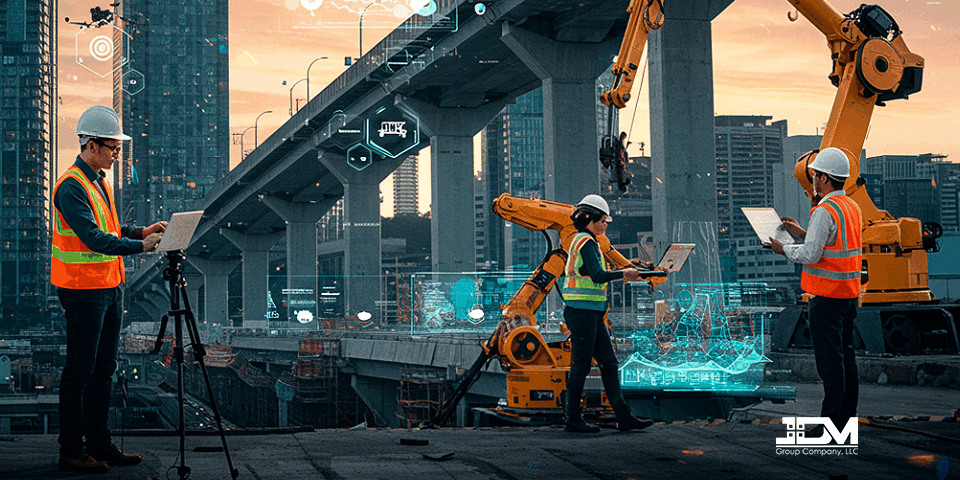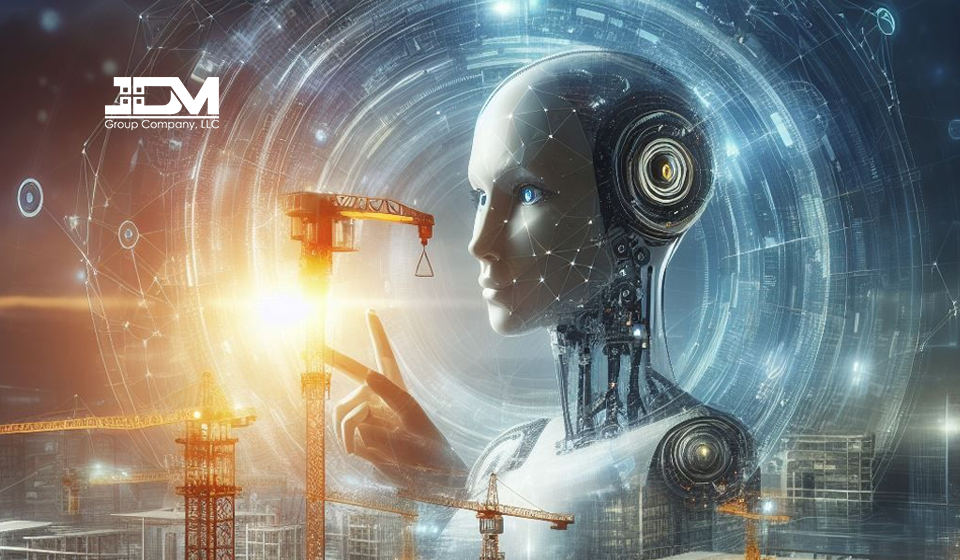The Digital Revolution in Civil Engineering: Unlocking Potential with Artificial Intelligence

The Impact of BIM Technology on Construction Project Efficiency
March 27, 2025Civil engineering, a time-honored discipline that has shaped our physical world, stands at the cusp of an unprecedented transformation driven by digitalization and, particularly impactfully, by artificial intelligence (AI). What was once considered science fiction is rapidly becoming a tangible reality, promising to revolutionize how we design, build, and manage the infrastructure of the future.
The adoption of digital tools like Building Information Modeling (BIM) has already marked a turning point in efficiency and collaboration within civil engineering projects. However, the arrival of AI unlocks an even broader and more disruptive range of possibilities.
How is AI impacting civil engineering?
AI is making its mark in several key areas of the profession:
- Design and Optimization: AI algorithms can analyze vast amounts of data (topography, geotechnics, regulations, costs, etc.) to generate optimized designs, identify innovative solutions, and predict the performance of structures under different scenarios. This allows for the creation of more efficient, safer, and more economical designs.
- Project Planning and Management: AI can improve the accuracy of schedule and budget planning, identify potential bottlenecks, and optimize resource allocation. Predictive analysis based on AI can anticipate risks and enable more informed decision-making.
- Infrastructure Monitoring and Maintenance: Intelligent sensors and AI systems can collect and analyze real-time data on the condition of bridges, roads, tunnels, and other infrastructure. This allows for the early detection of potential problems, the scheduling of preventative maintenance, and the optimization of asset lifespan.
- Autonomous Construction and Robotics: AI is driving the development of robots and autonomous equipment capable of performing repetitive, dangerous, or high-precision tasks on construction sites. This can increase efficiency, improve safety, and reduce labor costs.
- Data Analysis and Decision-Making: The vast amount of data generated in civil engineering projects can be processed and analyzed by AI to extract valuable information, identify patterns and trends, and facilitate strategic decision-making.
Key Benefits of AI in Civil Engineering:
The integration of AI in civil engineering offers a range of significant advantages:
- Increased Efficiency and Productivity: The automation of tasks and the optimization of processes lead to faster and more efficient project execution.
- Cost Reduction: The optimization of design, precise planning, and predictive maintenance can generate considerable savings throughout a project’s lifecycle.
- Improved Safety: The automation of hazardous tasks and intelligent monitoring can reduce the risk of accidents on construction sites and during infrastructure operation.
- More Innovative and Sustainable Designs: AI can help explore unconventional design solutions and optimize the use of materials and resources, contributing to sustainability.
- Better Decision-Making: Data analysis based on AI provides more accurate and timely information for decision-making at all stages of a project.
The Future of Civil Engineering with AI:
The adoption of AI in civil engineering is an irreversible trend. As technology continues to advance, we will see even more sophisticated and transformative applications. The civil engineers of the future will need to be equipped with new skills and knowledge to collaborate effectively with AI systems and maximize their potential.
In conclusion, the digital revolution, driven by artificial intelligence, is opening new frontiers in civil engineering. Those professionals and companies that embrace these technologies will be better positioned to face the challenges of the future, build more resilient, efficient, and safer infrastructure, and shape a smarter built world.




